Huge thanks to the many collaborators, experimentalists, analysts and software developers who made this work possible — truly a team effort!
A "meme-torial" of the science is coming soon 👀

Huge thanks to the many collaborators, experimentalists, analysts and software developers who made this work possible — truly a team effort!
A "meme-torial" of the science is coming soon 👀
Read more about the study: www.immunosensation.de/news/scienti...

formatmypaper.com

formatmypaper.com
Congratulations to @hggadvances.bsky.social, and all my fellow co-editors, for establishing a great genomics journal. And to all authors: if your manuscript still needs a home, consider submitting with us. We would be delighted to handle your paper 🫶 💪.
Check out the amazing cover from @comfortandadam.bsky.social to commemorate 5 YEARS of HGG Advances!
www.cell.com/hgg-advances...

Congratulations to @hggadvances.bsky.social, and all my fellow co-editors, for establishing a great genomics journal. And to all authors: if your manuscript still needs a home, consider submitting with us. We would be delighted to handle your paper 🫶 💪.
Check out Kerstin's thread for overview
Interested in how this works & what we found? Read along! 👇
Check out Kerstin's thread for overview
Interested in how this works & what we found? Read along! 👇
Interested in how this works & what we found? Read along! 👇
1/9
1/9
Out now in Nature Reviews Genetics: www.nature.com/articles/s41...
#3D-Genome #StructuralVariants #uksh
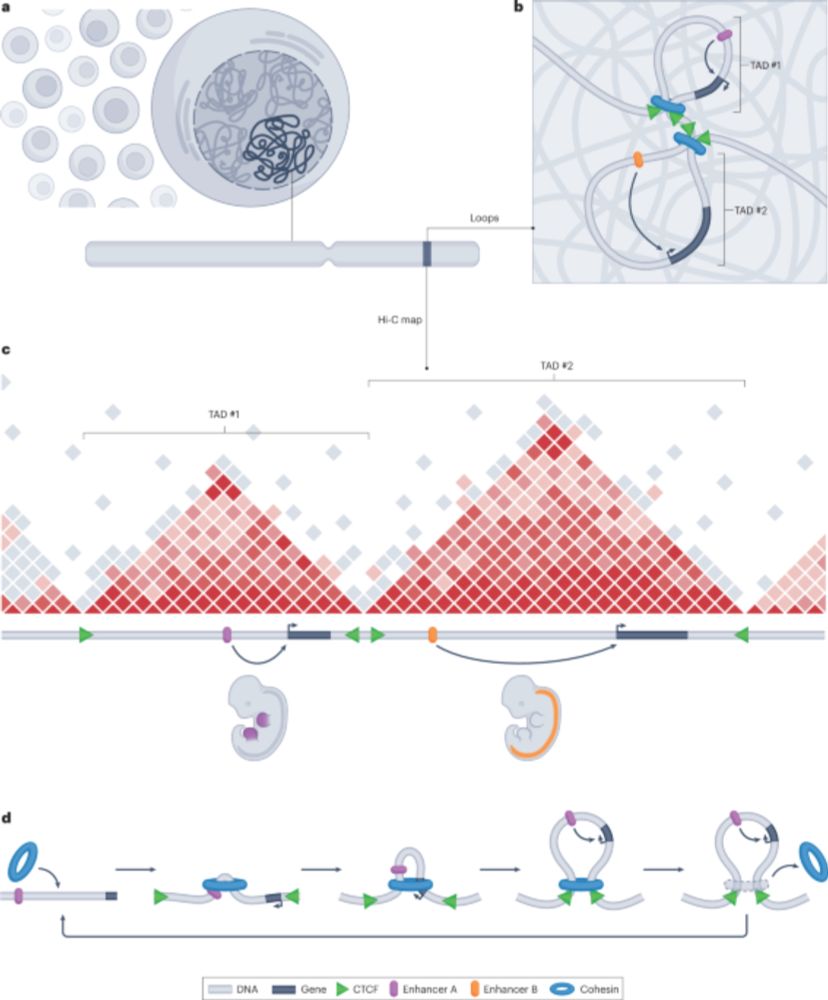
Out now in Nature Reviews Genetics: www.nature.com/articles/s41...
#3D-Genome #StructuralVariants #uksh
🧵1/
Maternal obesity reprograms fetal liver macrophages, triggering adult fatty liver disease in the offspring.
This study uncovers how Kupffer cells act as intergenerational messengers in metabolic disease.
👉 Read here: rdcu.be/erD3b
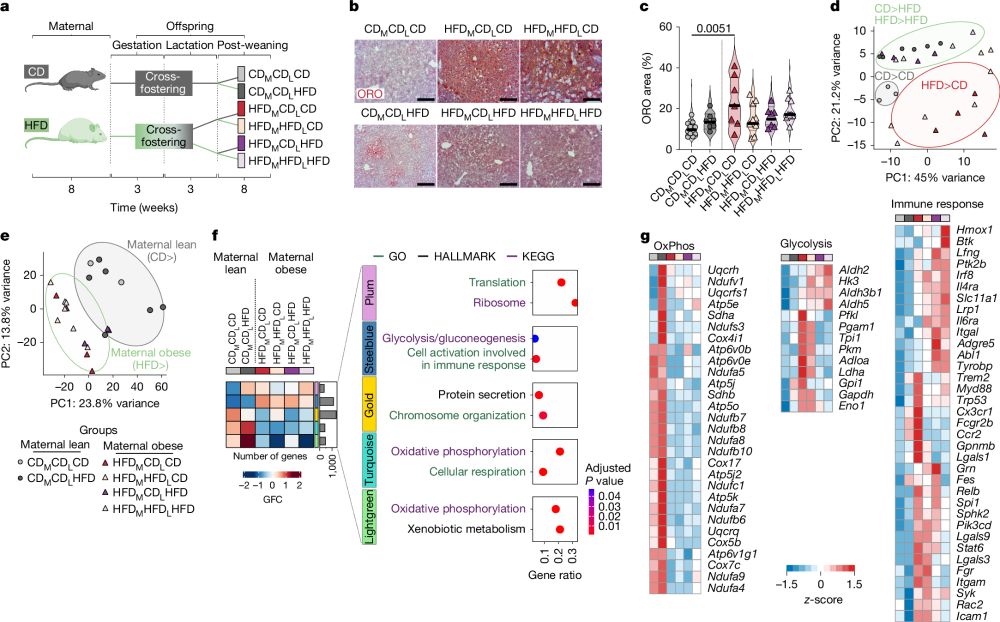
Check out our paper - fresh off the press!!!
We find widespread functional conservation of enhancers in absence of sequence homology
Including: a bioinformatic tool to map sequence-diverged enhancers!
rdcu.be/enVDN
github.com/tobiaszehnde...
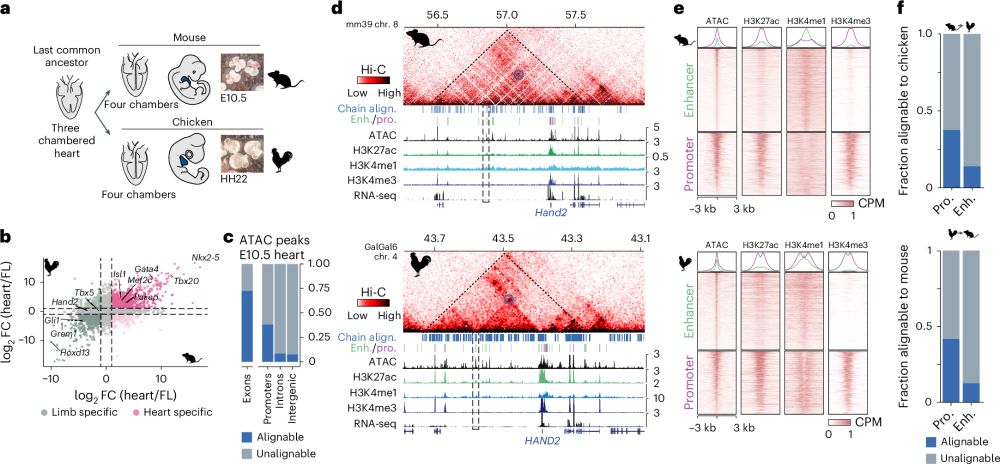
She shared her adventurous scientific life and life lessons like "If you want to do something, you find a way. If not, you find excuses", and reminded us scientists to thank our near and dear because "they suffer a little bit"

She shared her adventurous scientific life and life lessons like "If you want to do something, you find a way. If not, you find excuses", and reminded us scientists to thank our near and dear because "they suffer a little bit"
© V. Lannert/G. Hübl/Uni Bonn
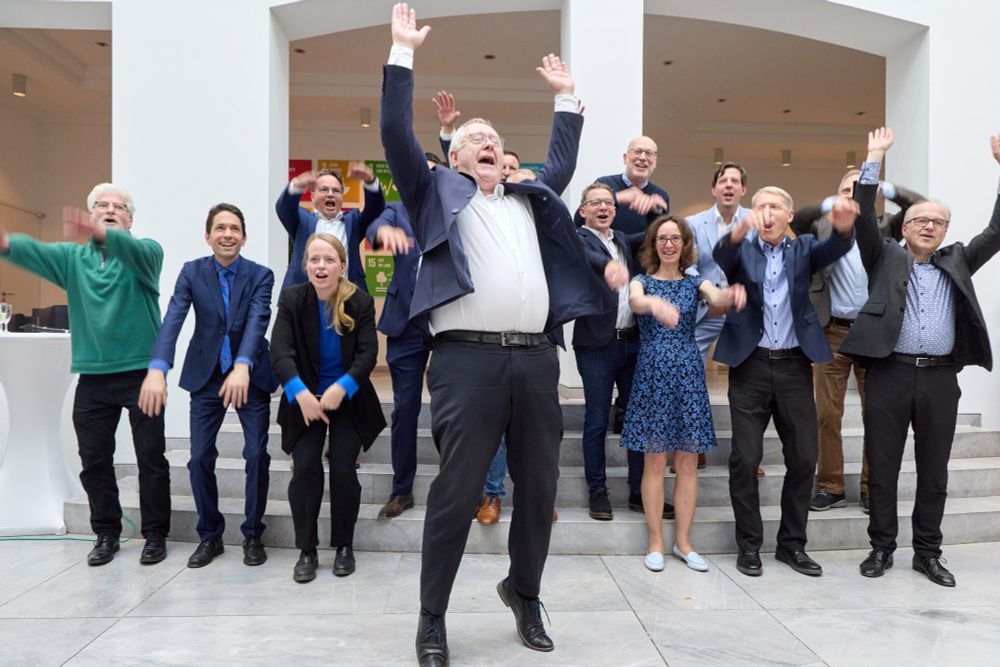
The @dfg.de just announced that ImmunoSensation3, focussing on Immune Diversity will be funded!
Let us #celebrate 7 more years of #immunology in #Bonn 🎉
www.immunosensation.de/news/immunos...

The @dfg.de just announced that ImmunoSensation3, focussing on Immune Diversity will be funded!
Let us #celebrate 7 more years of #immunology in #Bonn 🎉
www.immunosensation.de/news/immunos...
📅 May 21 | ⏰ 4PM
🔗 Register: dkfz-de.zoom.us/meeting/regi...
#Genomics #RareDiseases #GHGA

📅 May 21 | ⏰ 4PM
🔗 Register: dkfz-de.zoom.us/meeting/regi...
#Genomics #RareDiseases #GHGA





www.biorxiv.org/content/10.1...
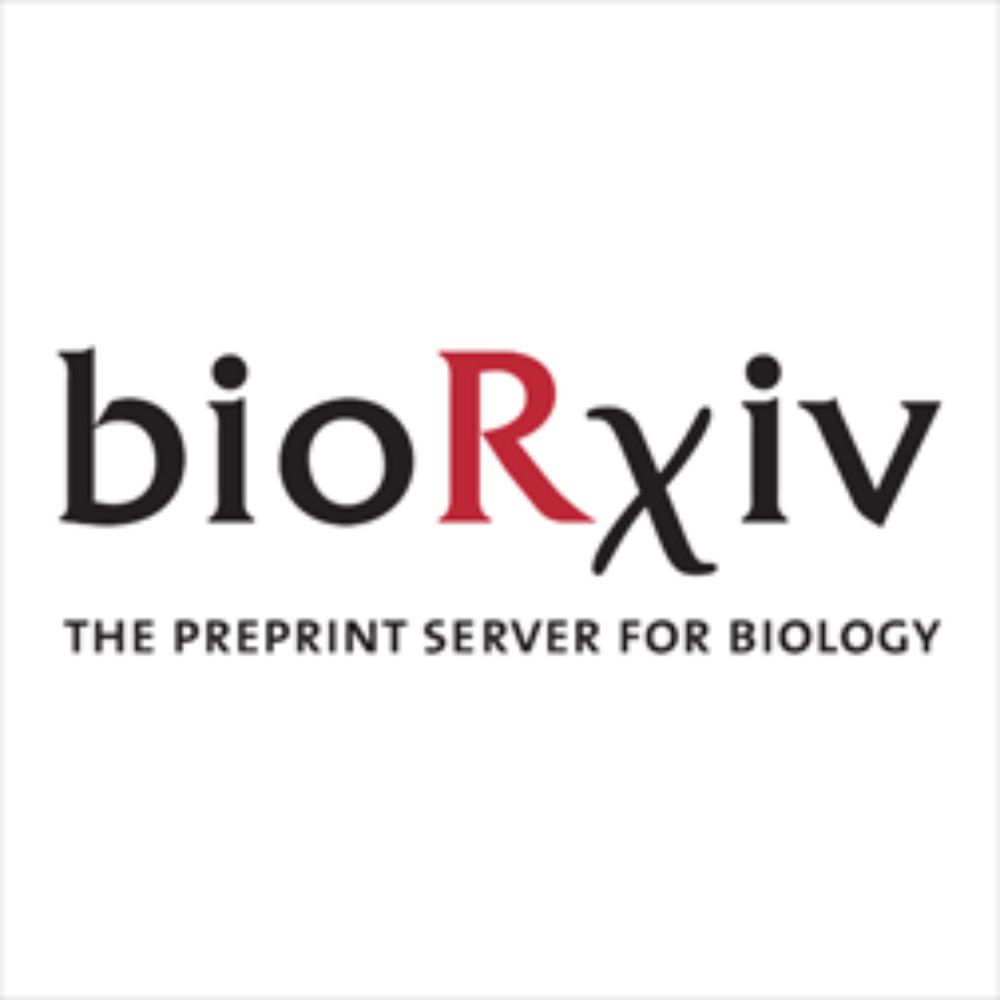
www.biorxiv.org/content/10.1...
🧵👇 (1/n)
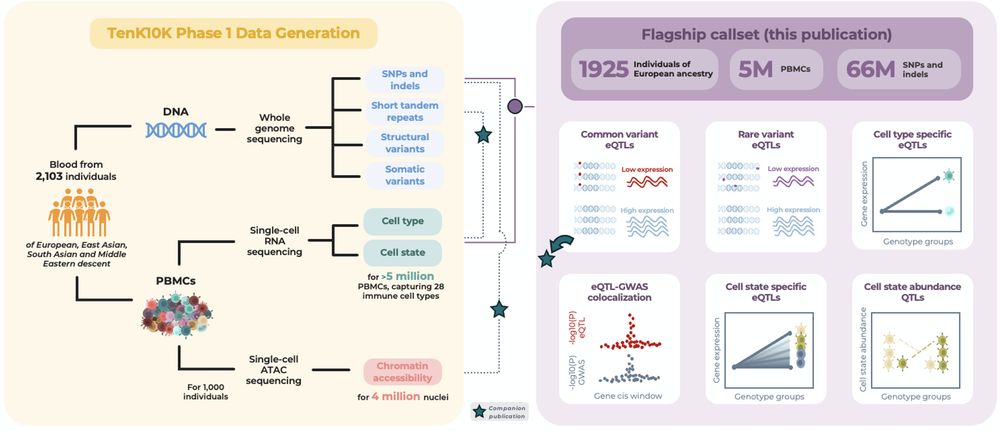
🧵👇 (1/n)
www.vindy.com/opinion/edit...

www.vindy.com/opinion/edit...
1⃣New e/sQTL resource from TOPMed
In 14,324 whole blood & tissue samples the study detects cis- and trans-e/sQTLs and colocalizes them with 10,000 GWAS signals for 164 traits.
🔗 www.medrxiv.org/content/10.1...
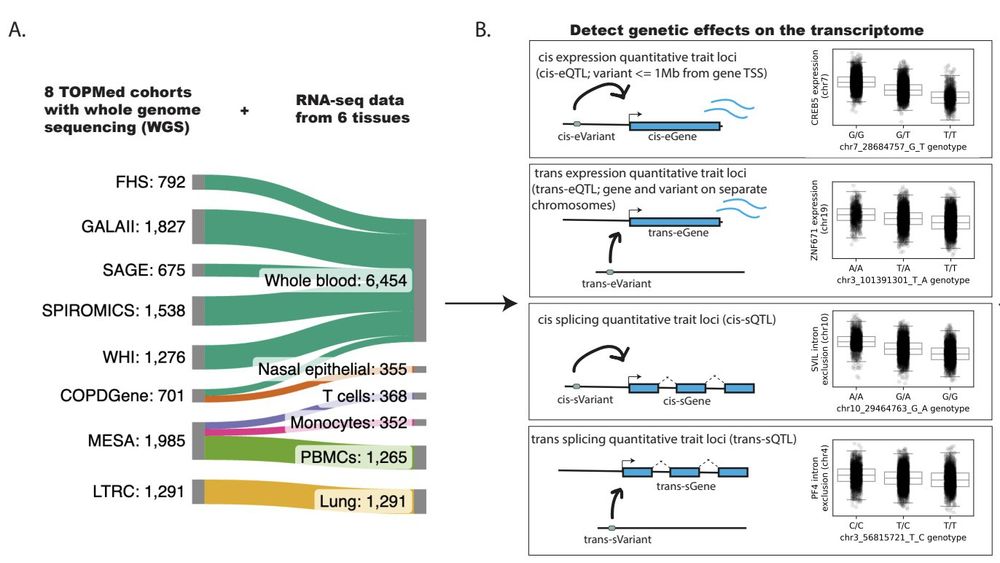
1⃣New e/sQTL resource from TOPMed
In 14,324 whole blood & tissue samples the study detects cis- and trans-e/sQTLs and colocalizes them with 10,000 GWAS signals for 164 traits.
🔗 www.medrxiv.org/content/10.1...
I'm very excited to present our new work combining associations and Perturb-seq to build interpretable causal graphs! A 🧵
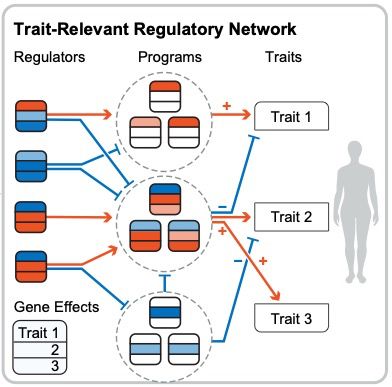
I'm very excited to present our new work combining associations and Perturb-seq to build interpretable causal graphs! A 🧵
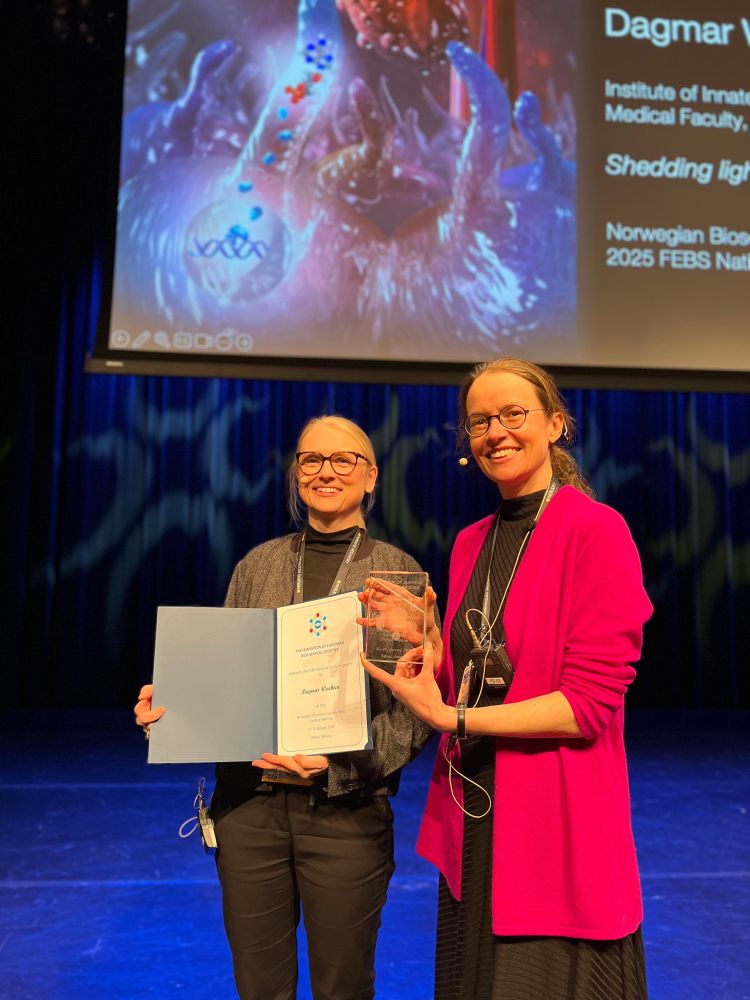
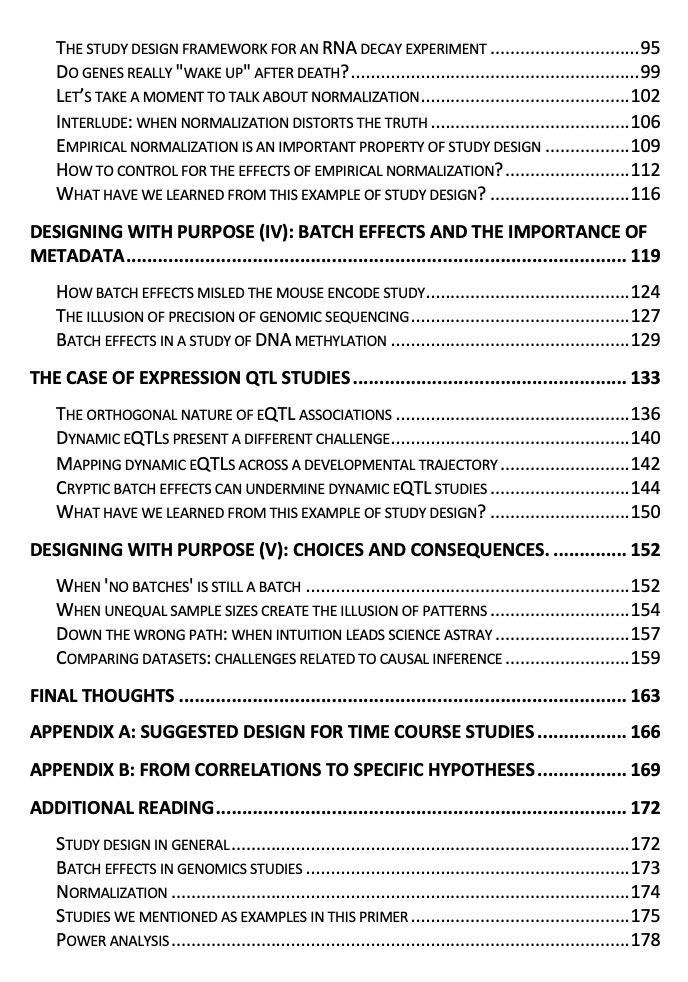
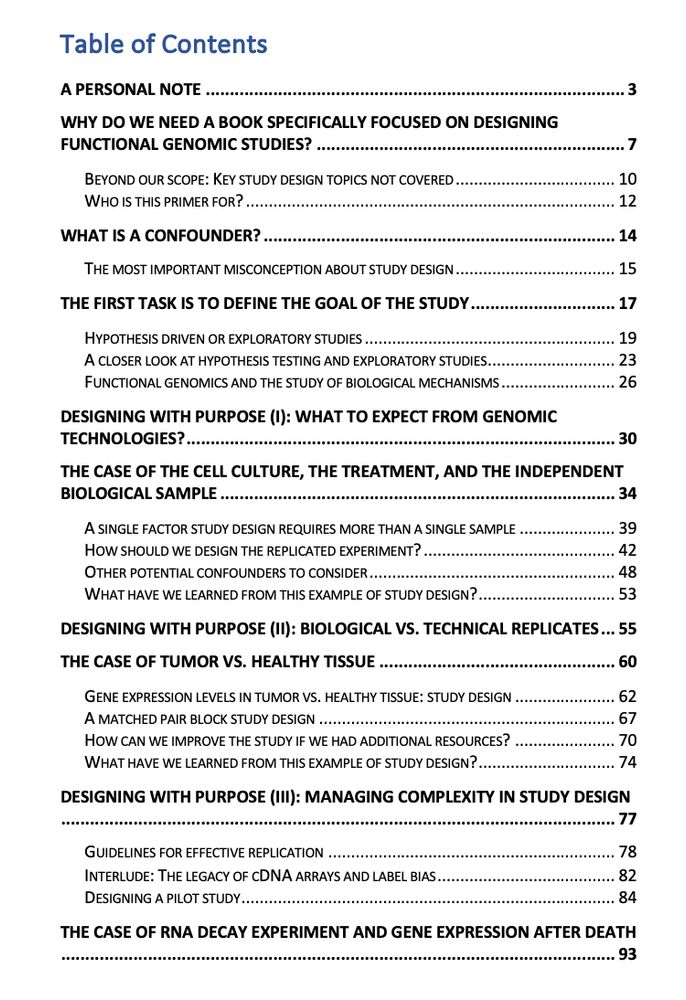
The ENCODE 4 expanded registry of regulatory elements
- 2.35M 🧍 human cCREs
- 927k 🐭 mouse cCREs
www.biorxiv.org/content/10.1...
Led by @moorejille.bsky.social, this preprint summarizes data and analyses generated by hundreds of contributors across ENCODE 4
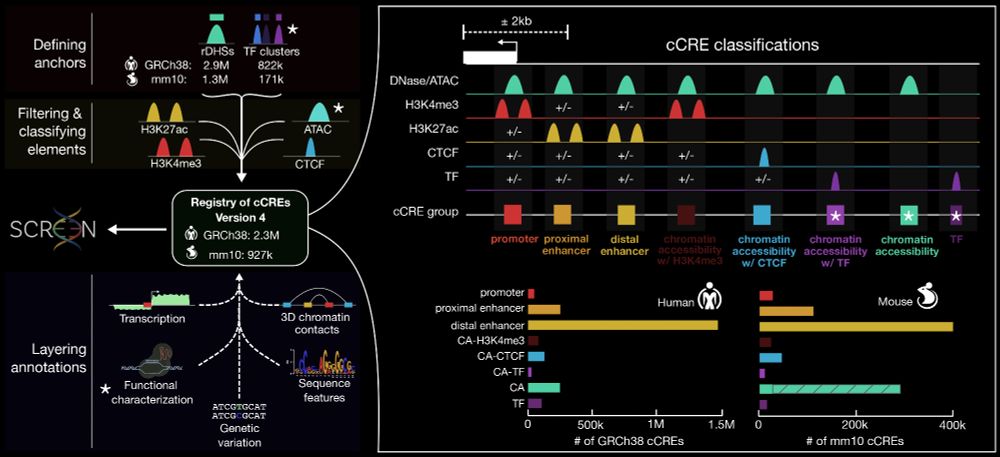
The ENCODE 4 expanded registry of regulatory elements
- 2.35M 🧍 human cCREs
- 927k 🐭 mouse cCREs
www.biorxiv.org/content/10.1...
Led by @moorejille.bsky.social, this preprint summarizes data and analyses generated by hundreds of contributors across ENCODE 4

